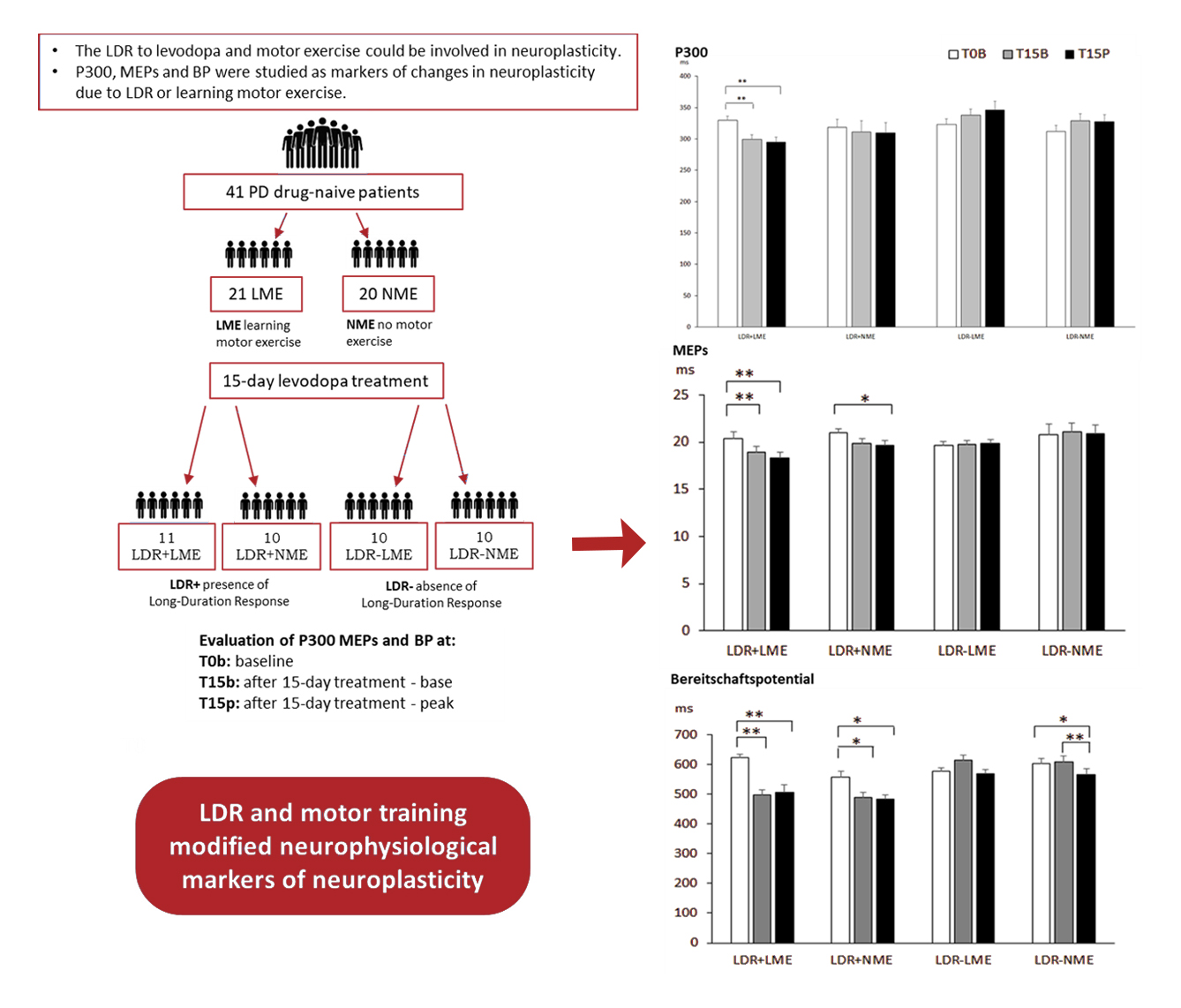 VOLUME 27, ISSUE 3 • October, 2023. Full issue »
VOLUME 27, ISSUE 3 • October, 2023. Full issue »

Article of the Year, Movement Disorders
Long-duration response to levodopa, motor learning, and neuroplasticity in early Parkinson's disease
Shedding light on the ‘mysterious’ long-duration response to levodopa: Should we rethink the clinical approach for the disease’s most efficacious drug?
It is a great honor to be the recipient of the MDS award for the “best research article of the year 2023” published in the Movement Disorders journal. I and the other coauthors (Giorgia Sciacca, Giovanni Mostile, Ivano Disilvestro, Giulia Donzuso and Alessandra Nicoletti from the University of Catania, Italy) are very proud for this important recognition of our study that is the last product of long-lasting research on the Long-Duration Response (LDR), begun more than 30 years ago.
It is surprising that levodopa, an old drug but still the most effective for the treatment of Parkinson’s disease (PD), offers new therapeutic perspectives thanks to the LDR, a particular property of the drug so far little exploited in clinical practice, even if it is well known that the LDR could ensure most of clinical benefit due to levodopa. Indeed, the common way to treat patients with levodopa is usually based on the short-duration response (SDR), a clinical improvement lasting a few hours after the administration of a single dose of the drug, whereas the LDR induced from prolonged administration of levodopa is often neglected by clinicians.
The mechanisms underlying the LDR are still poorly understood, and the aim of our study was to investigate the possible effect of the LDR on neuroplasticity and motor learning. We studied 41 patients with early Parkinson's disease who received a 15-day treatment period with levodopa at a fixed dose, known to produce a sustained LDR in about 50% of cases. The patients were randomly assigned for training involving the learning of a motor exercise (LME) or not learning a motor exercise (NME) during the 15-day treatment period with L-dopa. Neurophysiological markers, expression of cerebral neuroplasticity, were evaluated before and after treatments.

Our results showed that the neurophysiological parameters changed significantly in patients who developed a sustained LDR and even more in those who, in addition to presenting the pharmacological response, had performed motor learning training. These changes were not observed in the remaining patients who did not develop the LDR.
Our study sheds some light on the mysterious LDR to levodopa. Cortical excitability of early parkinsonians may undergo changes in neuroplasticity due to the development of an LDR to levodopa acting in synergy with motor exercise. On these grounds, therapeutic strategies based on the LDR should be considered to provide benefit to patients not only in terms of motor improvement without dyskinesia, but also considering the beneficial effect of the LDR on the adaptive changes in basal ganglia and cortical networks. Our findings support the LDR as a pharmacological outcome possibly facilitating the action of motor learning on neuroplasticity in early Parkinson’s disease.
The practical consequences of this study are basically two: First of all, the development of the LDR should be the main therapeutic objective to be pursued in patients treated with levodopa, because the LDR produces changes of cerebral neuroplasticity associated with clinical benefit. Second, the LDR facilitates the effects of motor learning and as such should be considered to optimize the rehabilitation for Parkinson's disease.
Read more Moving Along:






